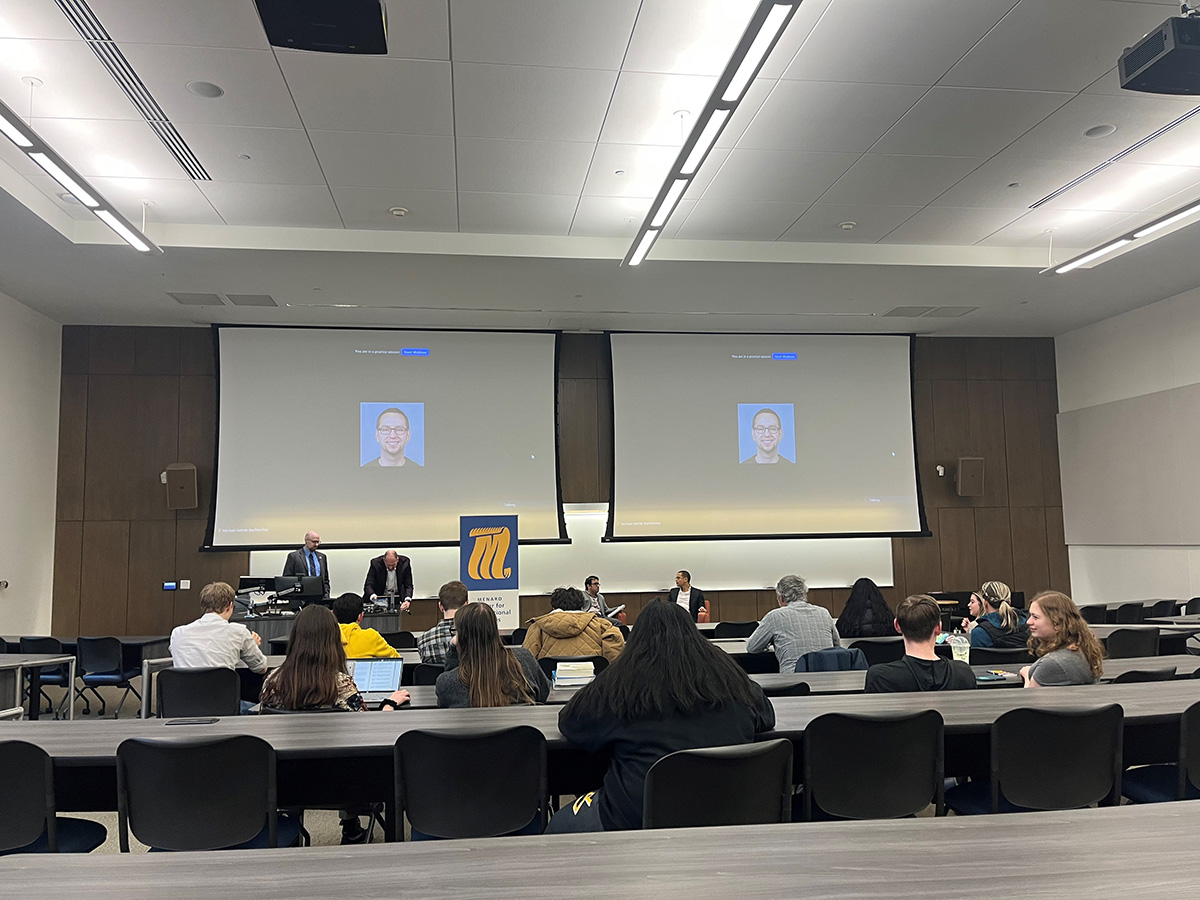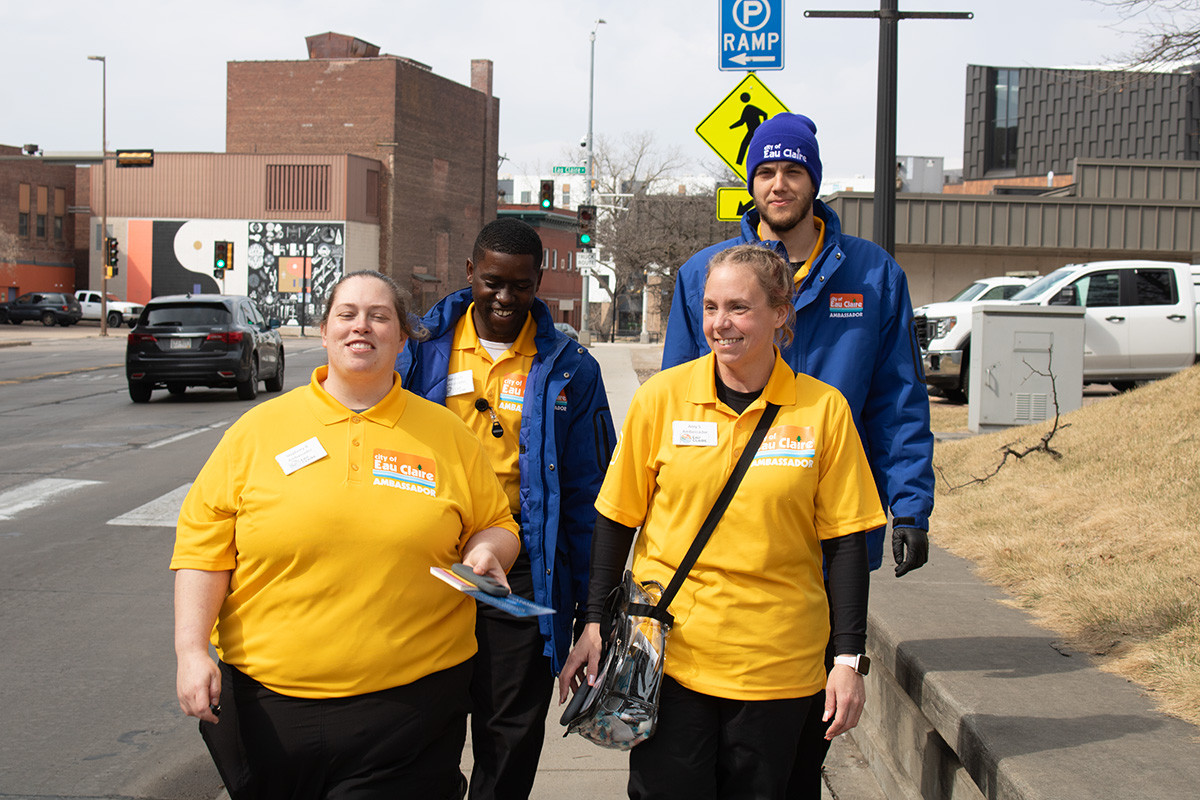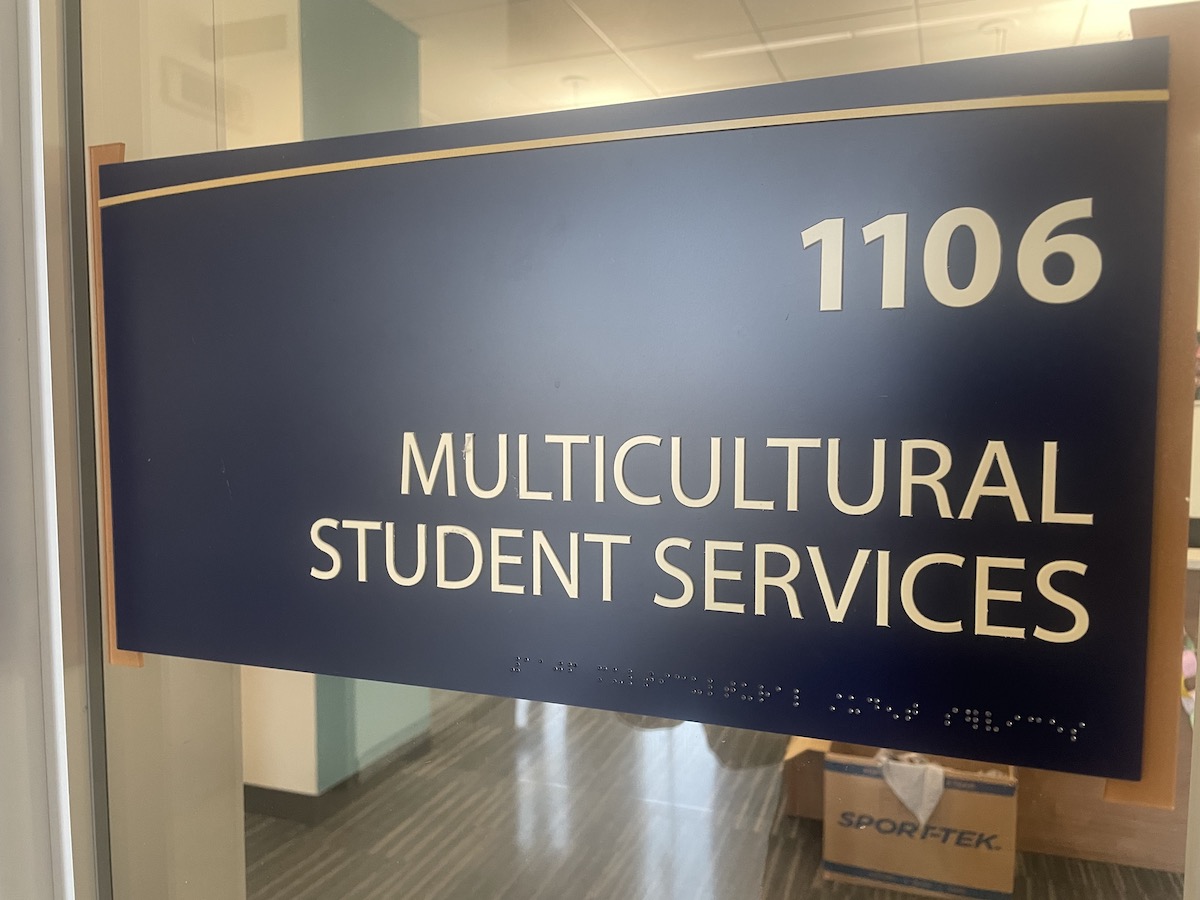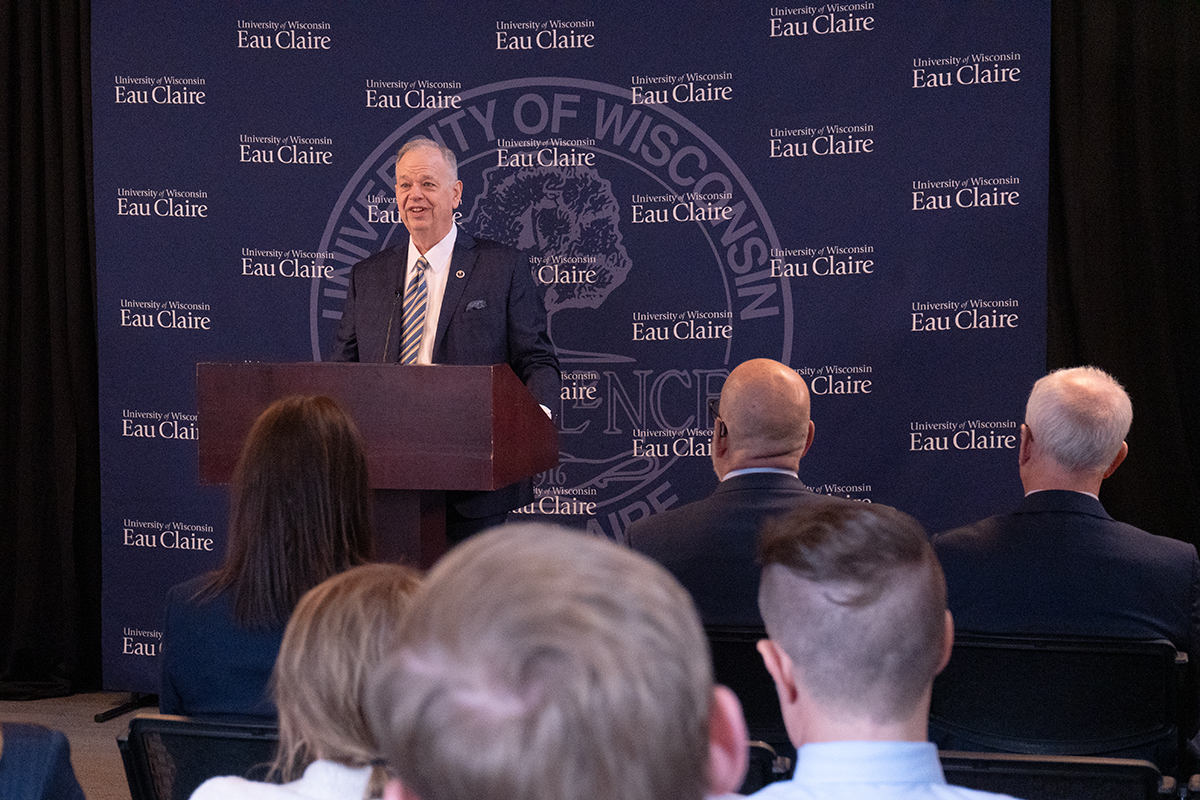The Menard Center for Constitutional Studies hosted an event exploring free speech and artificial intelligence. The event occurred on Monday, Feb. 26 and involved three panelists, all leading experts in their respective careers.
The event was discussion-based and dove into topics regarding AI and free speech, the implications of AI within the workforce and academic and political settings. The event also went into detail about some of the history of AI and how it has and continues to develop.
The three panelists included Dominique Lazanski, Jacob Mchanagma and Rahul Gomes. These three members are leading experts in technology, free speech, AI and its societal impact.
Lazanski works at the University of Pittsburgh and is the owner and director of Last Press Label. Lazanski is an expert in internet policy, telecommunications standards and cyber security policy. She has worked with companies such as Apple, Yahoo! and eBay.
Mchanagma is a Danish lawyer and Vanderbilt University professor, human rights advocate, global expert in free speech and social commentator. He is the founder and director of Justitia, a Copenhagen-based think tank focusing on human rights, the freedom of speech and the rule of law.
Ghomes is a UW-Eau Claire computer science professor who advocates for artificial intelligence and its potential advancement in technology and healthcare fields.
The three were very open to the idea and use of artificial intelligence within the workforce, academic world and even everyday life. “Techno optimists” was the term Lazanski used to describe this view.
The panel was also very open to the idea of generative AI having free speech under the correct pretenses and in the future.
“I think there’s no bigger issue confronting free speech than generative AI,” Mchanagma said.
The relationship between AI and free speech remains hazy within the world. It’s a gray space with no laws stating what rights or how the two are related within America.
In the European Union, however, laws and regulations regarding AI have already been put in place. The largest is the AI Act, approved on Dec. 8, 2023.
“It’s also a way to be geopolitically relevant even though your own companies cannot innovate to the same degree that American companies can, and that will have downstream effects on the practical exercise of free speech for Americans,” Mchanagma said.
Mchanagma also highlighted that Americans should potentially “push back against” these types of free speech norms.
On Feb. 6, the United Kingdom released its approach to AI and its implications within society and free speech.
“They are in this middle ground between over-regulation and not enough leeway for innovation as well,” Lazanski said.” They’re looking to come up with parameters in terms of when they would act and when they wouldn’t act, which to me seems technocratic and potentially cooling for free speech.”
The panel also dove into topics such as deep fakes and their relationship to the situation, the future state of the workforce and job security. Also highlighted by the panel was the use of AI within the classroom.
“We cannot stop our students from using ChatGPT,” Ghomes said. “What we can tell our students is to think critically about what they are analyzing and reading.”
Ghomes also uses ChatGPT as a way to generate discussions regarding information within the class. It helps Ghomes gauge what materials “might be useful to discuss” for his students.
“We [teachers] have become facilitators. We want to make sure students get the knowledge,” Ghomes said. “There’s a GPT or a language model giving students the knowledge now so how can we as teachers make your experience better.”
As we continue to develop and grow within the AI field, free speech and other topics remain to be a gray space.
Voelker can be reached at voelkerw0364@uwec.edu.
Correction: A previous version of this story did not specify the discussion in the headline. Changed for further explanation.









